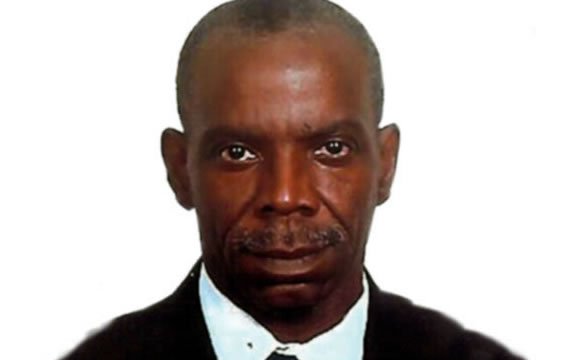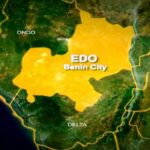
One must admit that the matter of same faith presidential ticket is a bit tricky in Nigeria. But running mates only matter because presidential candidates only need to fulfil constitutional requirements.
And the possibility of the running mate enhancing the ticket is merely incidental, as Nigeria’s Pentecostal community may have come up strong for Pastor Yemi Osinbajo, running mate to the President, Major General Muhammadu Buhari (retd.).
But after some time, Buhari practically rendered Osinbajo redundant by dissolving the Economic Management Team he once led, leaving him with the memory of distributing ‘TraderMoni’ to market women.
It gets even worse for a running mate who is not a heavy hitter that significantly contributed to winning the election. During the Umaru Yar’Adua administration, the then Vice President, Goodluck Jonathan, was consigned to the backroom reading newspapers. Some members of New Nigeria People’s Party think Bishop Idahosa cannot contribute to the political fortune of the party’s presidential candidate, Rabiu Kwankwaso.
Obafemi Awolowo, a Christian, who probably knew that his running mates were paper weights and couldn’t significantly contribute to winning the elections, won more votes with a South-East Christian running mate, Philip Umeadi, in 1979 than with Mallam M. Kura, a Northern Muslim, in 1983.
Under the parliamentary system, Prime Ministers, first among equals, practically share power with their ministers, who can call them out, as Boris Johnson just found out. Under the presidential system, the President is ‘alpha’, with no equal in his cabinet.
A Vice President in Nigeria can do nothing without the nod of the President. Numbers 1, 2 and 3 are mere nominal figures that represent values. But 1st, 2nd and 3rd represent ranking, with 1st as ‘alpha’ and above the rest.
Anyway, running mates are different from Vice Presidents, and are necessary only because Section 142(1) of the 1999 Constitution insists that “a candidate for an election to the office of President shall not be deemed to be validly nominated unless he nominates another candidate as his associate… who is to occupy the office of Vice President…”
A Vice President is relevant only if “the President may, in his discretion, assign to the Vice President… responsibility for any business of the government of the federation, including administration of any department (or ministry) of government,” just like “any minister of the federation.”
The Vice President’s constitutional responsibility as Chairman of the National Economic Council, over all state governors and Governor of the Central Bank of Nigeria, is an empty shell; a dog that is not expected to bite.
Paragraph 19 of Part I of the Third Schedule of the 1999 Constitution merely recommends that the NEC “shall have power to advise the President concerning economic affairs of the federation, (particularly) on measures necessary for the coordination of economic planning efforts or economic programmes of the various governments of the federation.”
The President may ignore this council’s advice. Former President Olusegun Obasanjo once averred that whereas his ministers and advisers (including the Vice President) may offer him counsel, he reserved the right to accept or reject their advice.
Also, the state governors, who may or may not be of the same political party as the Vice President and his boss, may have no time to attend meetings or inclination to adopt the economic suggestions of the Vice President. They are Chief Executive Officers on their own and widely dispersed geographically.
The real value of a Vice President resides only in Sections 145 and 146(1) of the 1999 Constitution that respectively provide that he could become Acting President if the President is on vacation or upon the “death or resignation, impeachment, permanent incapacity or the removal of the President.”
But it’s different in Lebanon, where religion is factored into political calculations. The 1943 National Pact is the power sharing agreement among Lebanon’s ethno-religious groups. According to the pact, the President shall be a Maronite Catholic Christian and the Prime Minister, Sunni Muslim.
While the Speaker of the Parliament shall be Shia Muslim, both the Deputy Speaker and the Deputy Prime Minister shall be Greek Orthodox Christians. Finally, the Chief of General Staff of the Armed Forces will always be a Druze.
Lebanon, whose population was 48 per cent Muslim and 46 per cent Christian according to 2017 figures, was founded by Maronites and the Druze in early 18th Century. While the Maronites are an ethno-religious group, native to the Levant region of the Middle East, the Druze are an Arab-speaking group, whose faith developed from Ismaili, a branch of Shia Islam.
Because there have been perennial unrests in Lebanon despite the fact that they factored in both religion and ethnicity into their politics, one may conclude that other factors apart from religion and ethnicity are responsible for the restiveness.
If you take a good look at most countries that have little or no perennial ethnic wars, you will discover that the economic wellbeing of the people has been substantially taken care of. North America, Western Europe and the nouveau riche Asian Tiger countries are good examples.
If you look even closer, you will discover that these countries don’t only ignore religion and ethnicity in selecting those that will rule them, most of their people do not also practice Christianity or Islam even if they are nominal Christians or Muslims or even adherents of other religions.
If Section 10 of 1999 Constitution stated that, “The government of the federation or of a state shall not adopt any religion as state religion,” no one should talk of religious balancing of a presidential ticket.
But then Section 15(2) contradicts Section 10 by sneaking in religion by stating that, “National Integration shall be actively encouraged, while discrimination on the basis of religion (among other things) shall be prohibited.”
Section 14(3), which provides that “the composition of the government of the federation or any of its agencies, and the conduct of its affairs, shall be carried out in such a manner as to reflect the federal character of Nigeria and the need to promote national unity, and also to command national loyalty…” may have made a case for religious inclusion.
Remember the great rejoicing after the Supreme Court of Nigeria decided that female students can wear Hijab to Lagos State Government schools, and Attorney Malcolm Omirhobo’s reaction to the judgment by joining the regalia of a traditional religion to his lawyer’s wig and gown to appear in court.
Could political parties ignore recent religious and ethnic violence in selecting personnel that would run their government? Those who argue that there is violence against Christians despite the fact that a Christian Vice President is in office are correct.
Those who also argue that violence has been wrought against Muslims despite Buhari, who is regarded in some quarters as a fundamental Muslim, being President are also correct.
The Political and Strategy Committee of the Christian Association of Nigeria has sent a checklist of criteria for Christians to use in deciding who to vote for. They are character, competence, capacity and policies.
Yes, competence and character are sine qua non for those who will run the country, yet in Nigeria the optics of religion, an unnecessary consideration that may, or may not, bring any votes, also matters.
With this checklist, you wonder if Bola Tinubu can pull a rabbit out of his Muslim-Muslim presidential magic hat.
[email protected]





